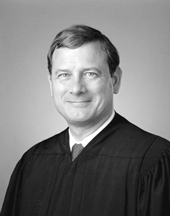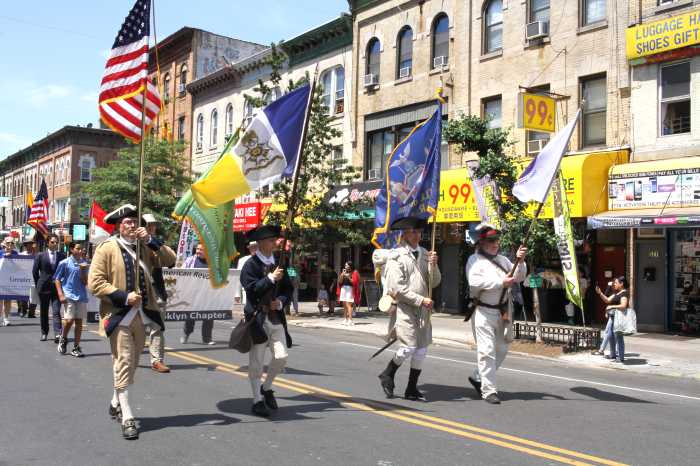Christian student group loses effort to block gay members yet still get university funds
The Hastings College of the Law, a unit of the University of California, did not violate any federal constitutional provisions when it refused to grant official recognition to a chapter of the Christian Legal Society (CLS), ruled U.S. District Judge Jeffrey S. White on April 17.
The San Francisco law school denied recognition to CLS because the organization’s by-laws prohibited membership by gay people and non-Christians.
Hastings, in common with most of the nation’s law schools, has a non-discrimination policy that covers religion and sexual orientation, and only provides official status to student organizations that comply with that policy. Recognition has many tangible benefits at Hastings, including eligibility for activity funds, use of the school’s electronic communications system, and listings in the student guidebook and admissions publications.
CLS had existed at Hastings for nearly a decade as a non-discriminatory group, but new leadership for the 2004-5 school year decided to affiliate with the national Christian Legal Society, which requires all of its student chapters to adopt by-laws that deny voting membership to anybody who does not subscribe to an orthodox Christian code of beliefs and that also exclude gays from membership.
When the new leadership applied to renew its recognition at Hastings, they were turned down based on these new discriminatory by-laws and denied funding. The law school, however, allowed CLS to continue meeting on campus and publicizing its meetings on campus bulletin boards and chalkboards.
The CLS lawsuit against Hastings is just one among many filed around the country in which the national parent organization is bringing the “culture wars” to higher education by arguing that school policies barring anti-gay discrimination are themselves discriminatory against Christian students. CLS argues that schools are trying to suppress anti-gay arguments on campus, and that anti-discrimination polices are a content-based restriction on speech and association.
Outlaw, the LGBT student group at Hastings, intervened in the case to help defend the position of the law school, represented by the National Center for Lesbian Rights and the law firm of Heller Ehrman White & McAuliffe.
CLS argued that the denial of recognition violated its rights under the First and Fourteenth Amendments of the Constitution, relying specifically on freedom of speech, freedom of association, free exercise of religion, and equal protection. The court last year granted a defense motion to reject claims regarding both unconstitutional establishment of religion and due process, and required CLS to refine its equal protection claim. The April 17 ruling is a final decision on the merits, subject to a likely appeal by CLS.
Ironically, Judge White relied on the Supreme Court’s recent decision in Rumsfeld v. Forum for Academic and Institutional Rights (FAIR), a gay rights defeat, in support of the law school’s position that it was not violating CLS’s First Amendment rights by denying recognition. In the Rumsfeld case, the Supreme Court rejected a First Amendment challenge to the Solomon Amendment, a federal statute that disqualifies for federal financial assistance any school that fails to provide access to military recruiters equal to that provided to other employers. Overturning a lower court ruling, the high court said that requiring a law school to let military recruiters on campus did not violate its First Amendment rights, because the school remained free to state its disagreement with the military’s anti-gay personnel policies. Writing for the Supreme Court in Rumsfeld, Chief Justice John Roberts asserted that a school’s application of its non-discrimination policy to exclude military recruiters is conduct, not speech.
Analogizing from the Rumsfeld decision, White pointed out that requiring CLS to have a non-discriminatory membership policy if it wants the advantages of official recognition does not compel the group to articulate any particular view on religion or homosexuality. CLS can continue to express its perspective about homosexuality and religion and maintain full student organization recognition, so long as its conduct does not exclude anybody from membership based on religion or sexual orientation.
White rejected CLS’ attempt to compare its case to the Boy Scouts of America, which triumphed in a 5-4 Supreme Court ruling upholding its refusal to let James Dale , an openly gay man, be a scoutmaster. Like the Boy Scouts, CLS is an “expressive association,” whose core function includes propagating certain beliefs, White conceded, and thus may not be compelled to adopt and broadcast a government-approved message. But, unlike the Boy Scouts being ordered by the state of New Jersey to admit an openly gay scoutmaster, CLS is free to maintain its discriminatory policy without any penalties—it merely foregoes certain benefits. It is still allowed to exist at Hastings, but without financial support.
CLS also sought to rely on an older U.S. Supreme Court case, Healy v. James, in which a university refused to allow an anti-war group to meet on campus during the Vietnam War. The anti-war group, however, was completely barred from the campus and precisely because of its message, not its membership policies. Thus the court found Healy to be irrelevant to CLS’ claims.
White’s ruling is a major setback for the national CLS in its struggle to chip away at gay rights protections in higher education, since it resoundingly affirms the right of Hastings Law School to apply its non-discrimination policy to student organizations. The court cited prior decisions holding that the government has a “compelling interest” in preventing sexual orientation discrimination, which would overcome any incidental burden on free speech or free religious exercise of religion that might flow from this ruling.
gaycitynews.com

































